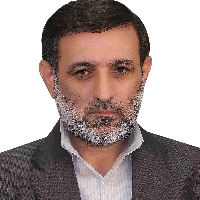The rights and moral dutes in Sahifa Sajjadieh
Depending on the situation and the type of relationship they have with each other, individuals in society have reciprocal rights and duties. "Right" means power, domination or some kind of civil privilege Which is prescribed by custom, law or moral system (in moral law) for individuals, groups or organizations under the responsibility of individuals. And they can credibly demand and enforce it from the relevant people in the form of accepted patterns. It is obvious that having any rights has some kind of reciprocal or mediated duty. Imam Sajjad (AS) in addition to some prayers in the Sahifa and also in his treatise on law has paid attention to a significant part of the rights and reciprocal moral duties (and to some extent legal and mandatory) of individuals in general and believers in particular. The present article seeks to extract a list of these rights and duties by considering and pondering on the various prayers of Sahifa Sajjadieh and to explain and interpret them as much as possible. The main question of the present study is that from the point of view of Sahifa Sajjadieh, what are the rights and duties of believers in the Islamic society and in their social relations? They have each other. The method of this study is to analyze the qualitative content of selected phrases from the prayers of Sahifa Sajjadieh. Keywords: right, rights, duty, ethics, custom, believers.
-
Feminism's confrontation on elements of Iran's general culture (by analyzing examples of cinematographic products)
Seyed Mohammadmahdi Sharafoddin *, Sayyed Hossein Sharafoddin
Strategy for Culture, -
The Position of the Audience in the Traditional Religious Propagation System
Seyyed Hossein Sharaf al-din*
Journal of Religious Propaganda Studies,



